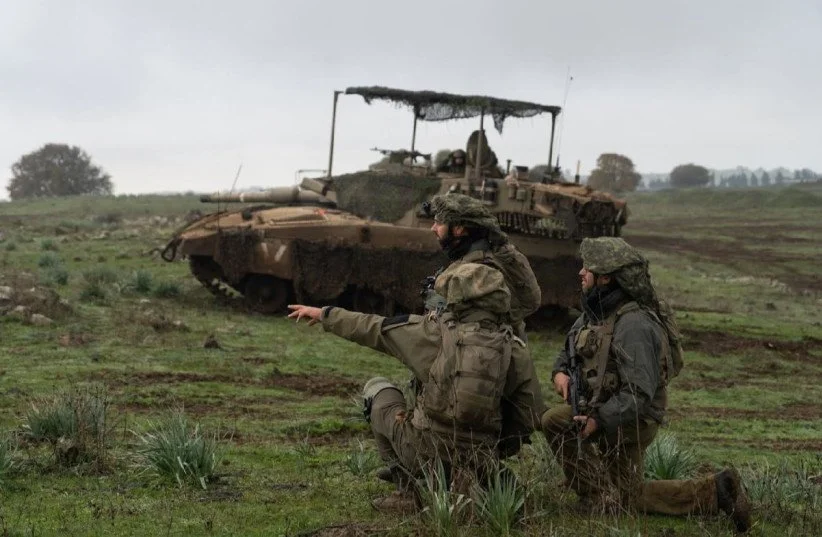The Monotony and Intensity of War
A New Normal in a War Zone
Living in a war zone is an experience that most Americans find hard to fathom. While the United States has faced attacks, its wars have primarily been fought abroad. However, in Israel, the situation is different. In a country the size of New Jersey, surrounded by enemies, Israelis face constant threats and live under the shadow of rocket alerts. They are adjusting to a new normal, one that requires resilience and reorientation.
At The Jewish Road, our prayers are with our friends and partners in Israel as they navigate these challenging times. We pray for peace in the Middle East and the protection of those living in war-torn areas.
A Brief History of Lebanon and its Relation to Israel
While it hasn’t truly made headline news just yet, as operations in Gaza begin to come to a close, you will start to hear about Lebanon. Lebanon, a neighboring country to Israel, shares a rich historical background with its neighbor. The Bible mentions Lebanon 71 times, often praising its natural beauty characterized by mountains and trees. In ancient times, Lebanon played a crucial role as King Hiram of Tyre provided lumber for the construction of Solomon’s Temple.
Similar to Israel, Lebanon has endured conquests throughout history. It was ruled by various empires, including the Babylonians, Romans, Byzantines, Crusaders, and the Ottoman Empire. When the Ottoman Empire began to crumble during World War I, Britain and France divided the region into mandates. France oversaw the mandate of Lebanon, which resulted in the adoption of a constitution similar to that of France. Eventually, Lebanon gained independence in November 1943.
In the early 1960s, Lebanon thrived as a banking hub and distribution center within the Arab world and the former Ottoman Empire. Industries such as food processing, jewelry, clothing, and carpets flourished. However, internal conflicts over the past several decades have left Lebanon on the brink of being considered a failed state.
It is important to note that during the Israeli War of Independence in May 1948, Lebanese troops supported attacks on Israel by providing intelligence, volunteers, artillery, and logistical support to other Arab countries. As a consequence of the war, approximately 100,000 Palestinian refugees sought shelter in Lebanon. These refugees and their descendants have been denied Lebanese citizenship, facing legal restrictions on property ownership and certain occupations.
With a population of approximately 5-6 million people, Lebanon is primarily divided between the Maronite Christian community and the Shia Muslim community. The country has witnessed civil wars, two wars with Israel, the impact of the Arab Spring, the Syrian conflict spill over, and ongoing political upheaval.
From within the Palestinian refugee community and certain Islamic groups emerged Hezbollah in the early 1980s. Sharing ideological ties with the Islamic regime of Iran, Hezbollah’s main goal is the elimination of Israel. This central mission shapes their existence and activities.
Hezbollah receives significant funding from Iran, amounting to billions of dollars. Additionally, the group engages in illegal narcotics trade as a source of revenue. Since October 7th, Hezbollah has launched over 5,000 attacks on Israel. Although these daily rocket attacks may not make headlines, they pose a constant threat to Israeli citizens residing near the border. As a result, around 80,000 individuals have been evacuated from these areas. Hezbollah claims that it will cease its attacks when Israel withdraws from the Gaza Strip. Until then, Israel responds by targeting key Hezbollah leaders and military locations.
Hezbollah: Birth and Ideology
Hezbollah’s emergence can be traced back to the early 1980s within the context of the Lebanese Civil War. The group shares the same ideology as the Islamic regime in Iran, forging a close connection and similar ambitions. Founded upon Shiite principles, Hezbollah seeks to establish an Islamic state in Lebanon, following the model set forth by Iran.
It is crucial to understand that Hezbollah’s primary goal is the elimination of the state of Israel. This fundamental objective guides their actions and justifies their aggressive stance towards Israel. With support from Iran, both ideologically and financially, Hezbollah continues to threaten the stability of the region.
Continuous Attacks and Retaliation
Despite receiving relatively less media coverage, Hezbollah carries out regular attacks on Israel. These attacks often take the form of rockets being fired into Israel from the north. Such aggression has resulted in the evacuation of approximately 80,000 Israeli citizens living along the border regions.
Israel, in response to these attacks, employs defensive measures and targets key Hezbollah leaders and military sites. Israel seeks to protect its citizens and deter further acts of aggression by striking at the heart of Hezbollah’s infrastructure.
This continuous cycle of attacks and retaliation has had significant implications for both countries and the overall stability of the region.
Current Ceasefire Negotiations with Hamas
Recent ceasefire negotiations between Israel and Hamas have captured international attention. The latest proposal put forward by Hamas includes the release of Israeli women, children, the elderly, and sick hostages in exchange for the release of 700-1,000 Palestinian prisoners. Among those would be 100 Palestinian prisoners serving life sentences for terror crimes and “female recruits” in Israeli custody.
Israeli Prime Minister Benjamin Netanyahu’s office dismissed this new Hamas position as based on unrealistic demands. Netanyahu’s office highlighted the need for updated discussions on the matter during a cabinet meeting held on Friday.
According to the proposed ceasefire agreement, an initial exchange of hostages and prisoners would set the stage for determining a permanent ceasefire date. Hamas aims to establish a deadline for Israeli withdrawal from the Gaza Strip after this first stage.
The second phase of the proposal focuses on releasing all detainees from both sides. However, it remains unclear whether Hamas intends to include all Palestinian political or terror prisoners within the definition of “detainees.” Previous demands made by Hamas in this regard were promptly rejected by Israel.
Mediators, including Egypt and Qatar, have been working towards bridging the gap between Israel and Hamas regarding the ceasefire and hostage exchange. Ideally, the United States sought to finalize a ceasefire deal before the start of Ramadan, which commenced in Israel on Sunday evening.
Pressure mounts internationally for Israel to accept a ceasefire due to concerns over an impending humanitarian crisis. The situation could potentially leave one-quarter of the population without adequate access to food. In previous attempts to reach a ceasefire with a hostage release, demands from both sides have led to unsuccessful negotiations.
In response to the mounting international pressure, Netanyahu stated that there were external influences discouraging Israel from entering Rafah. Nevertheless, he affirmed Israel’s commitment to dismantling Hamas battalions in Gaza.
While Western nations place diplomatic pressure on Israel, Iranian-linked groups throughout the Middle East, including Hezbollah in Lebanon, pro-Iran militias in Iraq and Syria, and the Houthis in Yemen, continue their hostilities against Israel, the United States, and their allies.
Praying for Peace and Stability
In times of great uncertainty and conflict, the call for the faithful is to pray fervently for peace in Jerusalem and the salvation of the Jewish people, as well as for those who surround her on every side.
While geopolitical pressures mount and negotiations take place at various levels, the power of prayer cannot be underestimated. Prayer serves as a means to connect with God and seek wisdom, guidance, and grace amidst adversity. It is an opportunity to intercede for leaders, governments, and communities affected by ongoing conflicts.
As we witness the struggles faced by Israelis, it is our duty to empathize, support, and uplift them through prayer. By praying for peace and stability in the region, we contribute positively to peace-building efforts and foster hope for a brighter future.
The Israel-Lebanon conflict is just another one of the complexities and challenges present in the pursuit of peace.
“O give us help against the adversary,
For deliverance by man is in vain.
Through God we shall do valiantly,
And it is He who will tread down our adversaries.”- Psalm 60:11-12
As we continue to stand with Israel during these challenging times, your support can make a profound difference. We invite you to join us in our Project Shield initiative, where 100% of your contributions go directly to projects on the ground. Through this effort, we partner with local organizations in Israel to provide tangible relief and support, all in the name of Messiah Yeshua. Your generosity can bring hope and healing to those most affected by recent events. Join us in this vital mission to uplift and aid our brothers and sisters in Israel.
About The Jewish Road
At the heart of The Jewish Road lies a passion ignited by a father-son duo, Ron and Matt Davis. Our journey began with a simple yet profound desire: to bridge the gap in understanding that has kept two faith communities apart for too long. We're here to help Christians connect with the roots of their faith and for Jews to explore the life and teachings of Jesus with an open heart.
Imagine a world where every believer, be it Jewish or Christian, not only knows their faith but truly understands its origins and interconnectedness. We strive to restore the Jewish essence of the Gospel, offering insights that deepen knowledge, bolster faith, and propel the growth of the Kingdom. The narrative of faith, we believe, is a two-act play where both acts are essential for a comprehensive grasp of the story. By uniting these acts, we're presenting a more holistic and enriching perspective.
Life is too short to wander without knowing the full essence of your beliefs. Whether you're attending a synagogue or a church, there's so much more to discover. The Jewish Road is here to guide, enlighten, and, most importantly, bring both halves of the story together. Join us on this journey; together


